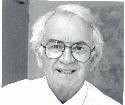Like any idea you conceive in life, fiction starts and ends in the mind; first in the conscious, then the subconscious, and finally digging deeper into the labyrinth of ageless wisdom; the subconscious, the ever-lasting fountain of imagination and inspiration.
I will not attempt here to teach you how to write fiction because quite frankly I do not believe it can be done with modular instruction. Crafting invented stories and converting them into novels and novellas is a highly personalized art form which writers approach in a myriad of disparate ways.
What I will do on the other hand is provide you with some personal thoughts on crafting fiction; thoughts derived from my own experience.
WHY I WRITE FICTION
While I have a preference for non-fiction I also write fiction with a modest but nonetheless marked degree of success.
Some writers take one route, some the other; I take both - but only after I managed to master the first: non-fiction.
Why should this be so?
I discovered early on in my writing career that coming to terms with the disciplines of crafting non-fiction dramatically improved my ability to create fiction and to attract proposals for publication of my increasing output.
So why do I write fiction?
Quite simply, to amuse myself, to stretch my reach, to challenge my imagination - and when my offerings are published and other people tell me they like what I create, so much the better.
Having proposals for works of fiction accepted for publication is never easy but with contracts in my pocket for all ten outpourings to date, I am not complaining…
HOW I WRITE FICTION
Drawing on the disciplines of one genre I apply them to the other - and so - my golden rule on crafting fiction is to operate solely within the confines of what I know. That is why before tackling a fictional project I visit my subconscious to establish levels of interest, knowledge, and above all expertise.
Functioning in scenarios where I feel comfortable, relaxed, confident, and at ease makes writing fiction a joyous occasion and provides me with a sense of fulfilment.
http://how-to-write-cutting-edge-fiction.com



